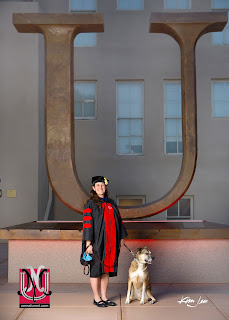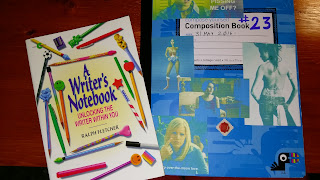I return to my high school teaching job in two weeks.
I've on version four of my revision plan.
It's been a rough summer.
I now realize that out of my 333 page dissertation (not including bibliography/appendices and feel free to insert a joke here about being half a devil) that I can use maybe (maybe) 5 pages. There's a small bit about Owain Glyndŵr from 1 Henry IV and Macbeth that I can use. The close reading on Satan and animals in Paradise Lost is okay. The rest is crap.
Kind of.
The fact is most of the work I did on devil texts in English literature from the Anglo-Saxons to the Restoration will now be relegated to a single sentence in an introduction or explanatory footnotes that show I know this other stuff exists. So the work was valuable. But valuable in the "learn how to do long division and show your work so you can later do it in your head" way.
I was advised back in June that the dissertation did not require revision, it required a complete re-visioning of the topic.
I admit that I was not sure what this meant exactly or what this would look like.
But I honestly did not want to look stupid by asking. I already felt stupid enough.
At first I thought that I could just rearrange the dissertation thematically and change some things.
But then a committee member met with me and just kept asking "what are you arguing?" And as I struggled to answer that question (ashamedly), I realized it was because the dissertation did not have one. There was no clear argument, not in the dissertation as a whole, and not in the individual chapters.
Now, I think I now understand why.
A key scholar for me is Jeffrey Burton Russell and his lifetime of work on the devil. But here's the problem. While my dissertation could be considered interdisciplinary, I am an English PhD. So using a historian's work as my model was a foundational issue. Russell lists just about every appearance of the devil in history, tracing the timeline. And my dissertation did the same thing. The problem is that's not analysis. That's not an argument. I also stated that I was applying Dundes' psychoanalytical, folkloric methodology. The problem here was that I was using his later career case studies as a model and that was untenable for an English dissertation.
So my methodological foundation was flawed and the rest just compounded these initial issues.
I do believe in interdisciplinary work. I do believe in applying folkloric studies more to English literature. I do believe in challenging periodization.
But I realized too that these are the arguments of a lifetime.
I don't have to make them all in the dissertation.
This is what academic careers are for. I literally have enough material from my diss research to last years, decades.
I forgot a key lesson:
Dissertations are marathons not sprints.
But it's hard to realize that the dissertation you spent a year working, and almost ten years thinking about and researching is crap and needs to be completely thrown out. It's the equivalent of tossing years of possessions and letting go of all the emotional baggage that goes with that (which incidentally I've also been doing the last few years).Now, with almost two months of hindsight, I think I have some better perspective.
The first thought is just how little higher ed or graduate education prepares you for these types of setbacks. I got a lot of supporting noises from people this summer. I received little real, practical, "here's where you go from here, you can do this" help. In some ways I get it, part of this process is PROVING you have an argument, PROVING you can do this, that you have a contribution to the field. So someone can't hand that to you. But I have no problems telling you that I was not only depressed this summer but has initially had serious thoughts of self-harm.
And no one noticed.
I did not ask for help because honestly, I didn't think there was any help to be had.
"You'll be fine" from friends did not cut it. And as grateful as I was for my social media support network, it was just not the same as a face to face support network, which I don't have.
As with so much with grad school, I had to find my own way through and it took most of the last two months to do it. Last week I almost lost all the ground and confidence I thought I had regained. Once I dumped the thematic idea of revision not re-vision, I worked on a revision plan I thought showed growth. It did not. In any way. And I spent most of that day crying in my office, thinking I had obviously proven I couldn't do this, so I should just make my peace with the fact that I was a high school teacher and that was it. When I said that because of all of this I had a hard time seeing any future I heard I'm sorry you feel that way.
I didn't mean so much that I didn't think I HAD a future, or even that I don't think I could BE a professor, I meant more that after the last year, of believing one thing and reality being something else, it just seemed better not to set goals. Or deadlines. Or expectations.
When you're drowning, it's really hard to remember that you know how to swim.
I mean, I thought I was graduating. I applied to teaching jobs out of state under this assumption. I was planning a move out of state. I took a full time job under that assumption. I envisioned a whole life that was "after the PhD" and what that looked like. I successfully met with book editors about #DevilDiss. On a personal note, I was bragging to everyone about graduating. People made travel plans. I was already looking so far beyond the defense...
And all of this contributed to just how hard the news that I would not be defending and graduating hit me.
Don't get me wrong, at this point, I do not disagree with a single note or piece of feedback about the dissertation. I get it. But that's a mind thing. And much of the above is not.
We write in the abstract a lot about how isolating a PhD program can be, and dissertating in particular, is- you're not on campus as much, you're working all the time, you're sitting at your desk, staring at a screen. But I don't think we talk enough about what this isolation looks like in reality. What the short and long-term effects are.
So what does all this mean?
- It means I return to my full time high school teaching job in two weeks.
- It means I'm spending those two weeks trying to finish my revision plan. Which I feel good about.
- Originally, these were all the works in the diss (highlighted). Now it only includes the unhighlighted works.
- The dissertation has an overarching argument and each chapter does too.
- This meant cutting a proposed chapter on pamphlets, which made me sad because the independent research I did on the devil in pamphlets is some of the most original work and I am really proud of it. But it doesn't fit the argument of the dissertation.
- The current set of texts is lean, and hopefully, more focused.
- This next week the goal is take this working document and expand it into the revision plan.
- I feel good about the focus on the primary texts and the scholarship, but am nervous about having to write a paragraph for each that shows the heavy analytical lifting of that chapter without having written anything.
- I'm also trying to focus on the fact that the things I've had to cut from the dissertation will make good future projects and ideas. I'm trying to see the dissertation as the beginning of a career and not an end point.
- I'd like to rework the pamphlet stuff and publish it because I do think it's original and valuable work.
- I'd like to revisit some of these texts through a folkloric lens.
- I think in another form the material in my original dissertation in a reworked form would make a good encyclopedia of every devil appearance in English popular literature.
And I have a rough idea of how I'll work this school year juggling everything. It helps (I guess) that I can't afford any conferences except Kzoo in the spring which I'm splurging on. So there's focus. I'm trying to see this as an opportunity to get some medieval and early modern publications on a CV that is currently folklore and pop-culture heavy.
But I'm not making any plans. I'm not thinking- oh I'll finish this by...
Or this time next year...
Or I'm aiming for X...
Or even entertaining any ideas about defense or graduation.
In short,
I can tell you that this point my eventual defense and graduation will not be a celebration. I do not plan on inviting anyone. At this point I wouldn't even tell anyone. I would only tell people once it was done. Because I honestly...I can't go through this again.
I would be grateful just to be done. Because as much as I see the notes, and have worked hard to fix them, and want the work to be done, I just need to be done.
I just need to survive. Get through. Finish.
So that's where I am.
Feel free to share any brilliant or inspirational ideas for getting through.
















